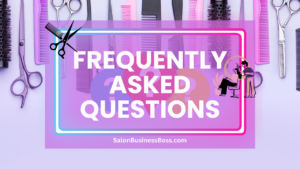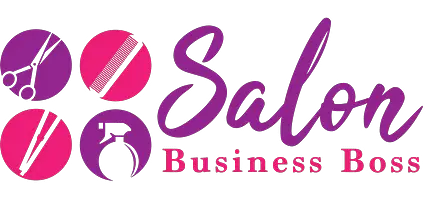Opening a hair salon stands as an enticing proposition. The allure of helping clients transform their appearances, fostering a sense of community, and indulging in creativity can be quite captivating. However, like any venture, it comes with its own set of advantages and disadvantages.
Here are some key points to consider when opening a hair salon: Creativity blooms with diverse styles, personal connections foster loyalty, but high competition and initial investment pose challenges.
In this article, we’ll delve into the various aspects of opening a hair salon to help potential salon owners make an informed decision.
Advantages
Creativity Unleashed

Opening a hair salon brings a truly fulfilling experience – the freedom to express your creativity. Hairstyling isn’t just a service; it’s an art. This venture lets you dive into a world of different techniques, trends, and styles. You’ll have the chance to design one-of-a-kind looks for your clients, tailored to their preferences. Classic cuts, modern trends, and even bold and experimental coloring techniques become your canvas. The salon becomes a hub of innovation, where your creative ideas take center stage.
Your artistic touch can transform someone’s appearance and boost their confidence. With each client, you have the opportunity to showcase your skills and imagination. This creative freedom isn’t just satisfying for you; it also sets your salon apart, attracting those who seek a unique and personalized touch. So, if you’re drawn to the idea of turning hair into an art form, opening a salon is the doorway to a world of boundless creativity.
Read more about: Hair Salon Growth Plan: Guiding Your Salon to New Heights
Client Connections
Opening a hair salon doesn’t just mean styling hair; it means forming genuine connections. Your salon becomes a place where people find more than a service – they find a personal haven. As a stylist, you’re in a unique position to build strong bonds with your clients. You get to learn about their likes, dislikes, and the stories they carry. These connections add an extra layer of meaning to every visit. Clients don’t just come for a haircut; they come for the experience you provide. When you understand their preferences and show genuine interest, it creates a sense of trust and loyalty. These relationships are the heart of your salon.
They not only make clients want to return but also lead them to spread the word to others. A welcoming atmosphere and personalized attention create a space where clients feel valued and understood. So, if you’re drawn to the idea of making lasting connections while transforming hair, opening a salon can be your gateway to meaningful interactions and enduring relationships.
Varied Services
In the world of hair salons, there’s more than just haircuts. Alongside the core service of hair shaping, salons provide a range of treatments like coloring, styling, and even extensions. This variety isn’t just about giving options; it’s about meeting diverse needs. By offering a range of services, you’re able to attract a wider group of people. Some may come for a new hair color, others for a stylish hairdo, and some might seek extensions for added length or volume.
This diversity isn’t just beneficial for your clients; it’s a smart move for your salon’s financial health. Different services mean different price points, which in turn means more potential revenue streams. When clients know they can get a range of treatments in one place, they’re more likely to choose your salon. It’s about catering to individual preferences and providing a comprehensive experience. So, if you’re interested in not just cutting hair but also coloring and styling, opening a salon opens the door to offering a wide array of services that cater to various tastes and needs.
Community Hub
A hair salon isn’t just about hair – it’s a place where connections thrive. Over time, salons become more than grooming spots; they turn into local gathering spots. People come not only to refresh their look but also to chat and connect. It’s like a little community within the neighborhood. The conversations that spark while getting a trim or a new style add an extra layer of warmth to the experience. This sense of community isn’t just pleasant; it’s valuable. As these connections deepen, a loyal group of customers forms.
They keep coming back, not just for the services but also for the atmosphere. When your salon becomes known as a friendly place to chat, it builds a reputation that spreads through word of mouth. This reputation is like a beacon that draws in new customers too. So, if you’re intrigued by the idea of a salon that’s more than just hair, opening one can turn your place into a local hub – a spot where people come for a trim and leave with a sense of belonging.
Economic Stability

Opening a hair salon isn’t just about styling; it’s about tapping into consistent demand. Hair care isn’t something people give up easily, even when times are tough. It’s a basic need that remains even during economic challenges. This consistent demand isn’t just a small perk; it’s a way to keep your business steady. When you’re offering services that people need regularly, your income stream tends to stay reliable. While other businesses might face ups and downs, a salon can remain relatively stable. People will still come in for trims and styling because it’s not something they can easily forgo.
This stability isn’t just comforting; it’s a solid foundation for your business plans. It means you can make decisions with a certain level of confidence, knowing that there’s a consistent market for your services. So, if the idea of a venture with dependable demand appeals to you, opening a salon could provide the economic stability you’re looking for – a business that stands strong even in uncertain times.
Read more about: Hair Salon Growth Strategies: From Ambition to Achievements
Flexibility
When it comes to working in salons, the concept of flexibility plays a significant role. Despite salons having established operating hours, there’s room for you to shape your own timetable. This aspect can prove beneficial for individuals aiming to strike a harmonious equilibrium between their professional and personal lives. It also holds advantages for parents who find themselves managing the demands of family life.
The perk of this flexibility lies in your ability to tailor your work hours according to your needs. This arrangement allows you to manage other commitments without the constraint of fixed shifts. Whether you’re looking to accommodate personal time or fulfill family responsibilities, having control over your schedule empowers you to allocate time where it’s most essential.
Disadvantages
Initial Investment
The process of starting a hair salon demands a significant upfront financial commitment. This entails various costs that need to be considered in your initial planning. These expenses comprise leasing or transforming a suitable space, acquiring the necessary equipment, securing the required licenses, and setting up marketing strategies.
The initial investment is essentially the amount of money you need to spend before your salon becomes operational. This can indeed be quite substantial and might seem overwhelming, especially for those who have limited funds available.
Leasing or renovating a space involves the cost of renting a location and making any necessary modifications to create a welcoming salon environment. Acquiring equipment encompasses purchasing everything from styling chairs and hairdryers to mirrors and product supplies. Obtaining licenses also ensures that you’re legally allowed to run your salon, which can involve additional fees. Lastly, marketing expenses are essential to let potential clients know about your salon’s services.
For individuals with limited capital, this financial commitment can present a challenge. It’s important to carefully budget and explore funding options, such as loans or grants, to help manage these initial costs effectively. Remember, while the investment may appear daunting, it’s a crucial step toward building a thriving salon business.
Intense Competition
Within the realm of the beauty industry, intense competition prevails. This means that there are many different salons all striving for the attention of the same group of customers. In such a crowded field, making yourself noticeable can be difficult, and this calls for a well-defined approach to how you present your salon and attract clients.
To stand out effectively amid this competitive landscape, it’s crucial to craft a distinct brand identity. This involves creating a clear and unique image of your salon that sets it apart from others. Your branding encompasses elements like your salon’s name, logo, and the overall impression it leaves on customers.
Moreover, a robust marketing strategy is essential to showcase your salon’s strengths and services. This could involve using social media, advertisements, and other promotional methods to reach potential clients and make them aware of what your salon can offer.
Seasonal Fluctuations

Salon businesses often go through changes in customer demand based on the seasons. This means that there are times of the year when more people seek salon services, while other times experience fewer requests. This pattern is known as seasonal fluctuations and it can have significant effects on both the income your salon generates and the decisions you make about your staff.
During summer, for instance, there could be a rise in the number of customers looking for styling services due to weddings or vacations. However, in the colder winter months, the demand might decrease as people have fewer special events or outings. These shifts in demand can impact the amount of money your salon makes.
Furthermore, managing these fluctuations can influence how you handle your staffing. During busier periods, you might need more employees to handle the increased number of clients. In contrast, during slower times, you might consider adjusting staffing levels to match the lower demand.
Read more about: How to Effectively Run Home-Based Hair and Beauty Salon Business?
Staffing Challenges
Staffing challenges are a common hurdle faced by salon businesses. The process of recruiting and keeping skilled hairstylists can pose a significant difficulty. This is because turnover rates—meaning how often employees leave and new ones are hired—are often quite high within the industry. To keep a group of talented and committed team members, it takes a dedicated investment of time, energy, and resources.
The task begins with finding hairstylists who possess the required skills and expertise. Once onboard, it’s important to create an environment that encourages them to stay. This involves providing opportunities for growth, fair compensation, and a supportive work atmosphere. High turnover can disrupt the flow of the salon and even affect the quality of service delivered to clients.
Maintaining a team of skilled stylists is essential for consistent service quality and a positive salon reputation. Regular training, open communication, and recognizing the efforts of your team members can help address the staffing challenges that come with the territory. It’s about ensuring your salon remains an attractive and fulfilling place to work, reducing turnover and fostering a committed team.
Regulatory Requirements
Navigating the regulatory landscape in the beauty industry can be quite a journey. This field is tightly regulated, meaning there are many rules and licenses that salons need to follow to operate legally. This process of ensuring you meet all the requirements can take up a significant amount of time and effort.
Regulations in the beauty industry encompass a range of areas, from health and safety standards to licenses for practicing cosmetology. Compliance involves understanding what rules apply to your salon, obtaining the necessary licenses, and adhering to certain protocols.
These regulations are often set by government bodies or industry associations to make sure that the services provided in salons are safe for both customers and staff. However, it’s important to note that these regulations can sometimes feel complex and involve dealing with bureaucratic processes that may not be very straightforward.
While staying compliant can be challenging, it’s an essential aspect of running a salon business. It’s about safeguarding the well-being of your clients and staff and maintaining the legitimacy of your operation. Taking the time to understand and meet these requirements can contribute to the smooth and lawful operation of your salon.
Physical Demands

The work you do in a salon can put a strain on your body. This is because the job often requires you to stand for extended periods, do repetitive movements, and come into contact with chemicals. If you don’t take care of yourself properly, these demands can lead to health problems over time.
Spending long hours on your feet can cause discomfort and fatigue, impacting your overall well-being. Repetitive motions, like cutting or styling hair, can lead to strain on certain muscles or joints. The chemicals used in salon treatments can also have an effect on your skin and respiratory system if not handled safely.
To counter these physical demands, it’s important to prioritize self-care. Taking breaks to rest your feet and stretch your body can help alleviate discomfort. Using proper techniques while working and using ergonomic tools can reduce strain. Also, wearing protective gear when dealing with chemicals is vital for your health.
Maintaining a balance between work and self-care is key to ensuring your physical health doesn’t suffer. By being mindful of these demands and taking steps to mitigate their effects, you can continue to pursue your passion in the salon industry while looking after your own well-being.
Read more about: How to Create Your Own Hair Salon Business: Practical Insights
Conclusion
Opening a hair salon is a venture that offers both artistic fulfillment and entrepreneurial challenges. The advantages of creative expression, client connections, and economic stability are balanced by the disadvantages of initial investment, competition, and staffing issues. Understanding these aspects is crucial in making an informed decision about embarking on this journey.
As with any business, growth often hinges on a combination of passion, perseverance, and adaptability. By acknowledging the potential advantages and disadvantages, aspiring salon owners can approach their venture with realistic expectations and a strategic mindset. Whether you’re eager to sculpt stunning hairdos or create a nurturing salon community, the path to salon ownership is both exciting and demanding – a true tango between scissors and ambition.
Frequently Asked Questions

Q: What are the main benefits of opening a hair salon?
A: Opening a hair salon allows for creative expression through various styles, fosters strong client relationships, and offers a sense of community. It can also provide economic stability and flexibility in scheduling.
Q: What challenges might I face in the hair salon business?
A: The hair salon business involves intense competition, requiring a strong branding strategy. Initial investment costs, seasonal fluctuations, and staff retention are challenges to consider. Regulatory compliance and physical demands also play a role.
Q: Is a hair salon business a financially viable option?
A: While a hair salon can offer economic stability due to consistent demand, it requires a significant initial investment for equipment, space, and licenses. Growth depends on effective marketing, client retention, and managing operational costs.
To learn more on how to start you own salon checkout my startup documents here.
The information provided by SalonBusinessBoss.com (“The Site”) is for general informational purposes only. All information on the Site is provided in good faith, however, we make no representation or warranty of any kind, express or implied, regarding the accuracy, adequacy, validity, reliability, availability or completeness of any information on the Site. Under no circumstance shall we have any liability to you for any loss or damage of any kind incurred as a result of the use of the Site or Reliance on any information provided on the Site. Your use of the Site and your reliance on any information on the Site is solely at your own risk. This blog post is for educational purposes only and does not constitute legal advice. Please consult a legal expert to address your specific needs. Terms and Conditions. (https://salonbusinessboss.com/terms-conditions/)

About the author. Entrepreneur and Salon Business Fan.
Hi! I am Shawn and I am a happy individual who happens to be an entrepreneur. I have owned several types of businesses in my life from a coffee shop to an import and export business to an online review business plus a few more and now I create online salon business resources for those interested in starting new ventures. It’s demanding work but I love it. I do it for those passionate about their business and their goals. That’s why when I meet a salon business owner, I see myself. I know how hard the struggle is to retain clients, find good employees and keep the business growing all while trying to stay competitive.
That’s why I created Salon Business Boss: I want to help salon business owners like you build a thriving business that brings you endless joy and supports your ideal lifestyle.

